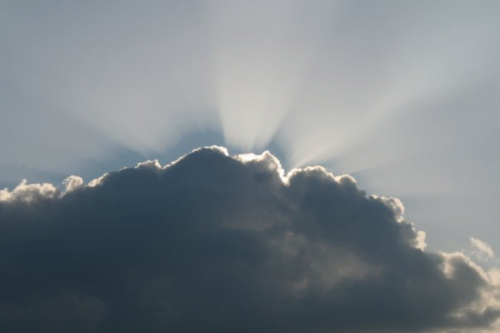Join me for a conversation with Psalm 63:1-8 . . .
Several years ago a dear friend of mine called me one day to say that she was dating someone new. The longest dinner date, she told me, turned into a dinner date the next night and they’d really been inseparable. And things got serious fast . . . already re-arranged their upcoming Christmas plans to spend the time with one another's families. While my friend sounded really happy (and so I was happy for her) the conversation jarred me.
Truthfully, it made my head spin.
But all I knew was that my friend couldn’t stop talking about her new love. I mean really talking about him. By the time I hung up the call I knew I could not only pick her fella out of a police line up if I had to, but I could write an essay on him too! I knew all about his tastes in flowers, his love of only the best ice cream (Blue Bell, she told me) and the fact that he always perfectly shinned his shoes before he left the house in the morning.
Though I was glad to listen, it almost felt like I was eavesdropping in on a private lovebirds conversation that wasn’t meant for me as she went on and on. I wasn’t in love with him, she was! But, how poetic he sounded!
In the same way as we read Psalm 63, we too might feel like we’re eavesdropping. For this Psalm presents us a conversation between two people who love each other very much. So it might feel to us a little bit awkward too.
For David speaks of a relationship he has with God. And it’s his relationship. But not ours (or is it?)
He begins by saying this about the Lord: “O God, you are my God, I seek you, my soul thirsts for you; my flesh faints for you, as in a dry and weary land where there is no water.”
Dramatic opening sentence isn't it? I don’t know if you’ve ever tried to go without liquids or water for a long period of time. But you simply can’t. Science tells us that our bodies are made up of 60% water and we can only go without for 3 days until they begin to shut down. Dehydration can seriously kill. So what a vivid point!
He can not live without God. And it’s not an intellectual pursuit. It's a pursuit of the actual presence of God.
For David feels confident in the One in whom he adores saying in verse 2, “So I have looked upon you in the sanctuary, beholding your power and glory.” May commentators say that David was actually writing from the sanctuary, otherwise known as the temple, one of the holiest place in Judaism. And possibly that David was staying up all night praying, seeking answers from the Lord. But then there are others who believe that this phrase “looked upon you in the sanctuary” was just as expression of closeness.
May commentators say that David was actually writing from the sanctuary, otherwise known as the temple, one of the holiest place in Judaism. And possibly that David was staying up all night praying, seeking answers from the Lord. But then there are others who believe that this phrase “looked upon you in the sanctuary” was just as expression of closeness.
And as a result, he’s got to get his praise on.
Verse 3: “Because your steadfast love is better than life, my lips will praise you. So I will bless you as a long as I live; I will lift my hands and call on your name.”

Bottom line: David's longings have a physical component. David can’t help but speak words about God from his mouth.
David can’t help but turn his posture in response to what the Lord has done in his life.
David can’t help but lift up his hands simply say, “Thank you, God” for giving him life.
So much so that verse 6 David goes on saying about the Lord: “I think of you on my bed, and meditate on you in the watches of the night; for you have been my help.”
I love this part of the Psalm for it’s so practical. I can just imagine David lying down on the ground and having the thoughts of God consume him making him unable to sleep. Tossing and turning filled with joy.
And it’s awesome language isn't it?
In fact, I dare say that these words of David might just overwhelm us.
Why?
Maybe in the same way as we encounter the “my new man or my new woman” is the greatest thing since sliced bread soliloquies from our friends . . . We don’t know God like David knows God.
For as much as our resume says we’ve been a member of a congregation since cradle roll . . .
For as much as our day planner says we’ve been committed to a particular church and its activities for years . . .
For as many songs we’ve sung, prayers we’ve prayed and sermons we’ve heard, we might just land in the place with Psalm 63 as our mirror and have one response:
I don’t know a God I’d thirst for in a dry and weary land where there is no water . . ..
A God I’d hunger for until my soul is satisfied with a rich feast . . .
A God I’d stay up late into the night for. . .
I don’t know a God like this.
Maybe those who do know, we believe are only the religious types like nuns or priests or pastors. Maybe it's for the more spiritual minded or expressive ones in the pews (and that's not us!).
For as many hours in my life I spent as a good church kid to the days and days of coursework in seminary and then to the years and years of full-time employment with the church—there was a moment in my life a couple of years ago where I realized I didn’t know. I too didn't know.
I didn’t know the God David speaks of.
Sure, I knew a lot of facts about God.
Sure, I knew how to lead organizations of God.
And sure, I’d committed to a relationship with God through my baptism and ordination vows years before. I voiced prayers on a weekly basis. And of course I wouldn’t have called myself anything other than a Christian. But I didn’t know. I didn’t really know.
And for this reason, I rarely preached on the Psalms. All of them sounded too much like one of those “Jesus is my boyfriend” worship songs I called annoying. Plus, so many of the Psalm felt bi-polar: “I love you God” in one verse and “God you’ve despised me to my enemies” in the second. Couldn't the Psalm writers just make up their minds already?
But through deep valleys of some of the hardest imaginable experiences in my life (the hard stuff we all go through if we live long enough), I started to read the Psalms again.
And from reading them and talking about them with friends, I uncovered a life changing truth: God of the universe, the God of all of creation, the God of all of the heavens loved me. Yes, loved me very much.
God loved me, Elizabeth Hagan.
 And when I began to “get” this . . . when I began to really get this, my only response was, “O God. You are my God. I seek you. My soul thirst for you.”
And when I began to “get” this . . . when I began to really get this, my only response was, “O God. You are my God. I seek you. My soul thirst for you.”There are really no other words (if words at all!)
When we know God loves us our bodies just want to sing with gusto, lift up our hands, and shout in thanksgiving. And we might just shed a tear or two.
In fact, this is why I believe that David ends with this particular description of God in verse 7: “For you have been my help, and in the shadow of your wings I sing for joy. My soul clings to you; your right hand upholds me.”
Do you hear the personal pronouns in this passage?
For YOU have been MY help.
I will sing for joy.
MY soul clings to you.
It's not that the larger community isn’t important (No we just have to read some of David’s other corporate Psalms to see how strongly he feels about this!) or that we don’t have acts of service to do out in the world.
BUT, David’s models for us the personal nature of knowing God. For, life with God is always about our being loved individually.
The God of the universe wants to satisfy your soul with a rich feast! Really. What an amazing invitation!
It's good news. It's really the best news of all.
“All In”
Sermon Preached at Oaklands Presbyterian Church in Laurel, MD
Matthew 13:31-33, 44-52
 I don’t know about you but I’m not the kind of person who enjoys taking BIG risks.
I don’t know about you but I’m not the kind of person who enjoys taking BIG risks.
I like to make measured decisions with the risks carefully analyzed and put into a larger perspective. I’m the kind of person who likes to shop the sale rack for the best prices and then comes back with a coupon for a discount 2 days later—with a spring in my step because I know I’ve made a really good decision.
In light of this, I’ve always thought that gambling with money was stupid because of odds.
But on a recent stop through Las Vegas while on vacation with my husband, Kevin, I found myself sitting in front of a slot machine, something I've only done a few times in my life.
And not just any slot machine, a DOLLY PARTON slot machine that sang to me “Working 9 to 5” and “Jolene” anytime I put coins in. I know it’s not a preacher-ly thing to do—starting off the sermon talking about gambling . . . but hang with me.
Within minutes, I found I’d doubled my $20 bill with Dolly singing my praises with another round of “Jolene.”
It was exciting but I was ready to stop. My husband—the biggest Dolly Parton fan—egged me on though.
“Don’t you just want to keep playing?? You’re hot! Why don’t you bet it all? I think you’ve got Preacher’s luck!”
But, I said no. I just wanted to leave the game and the entire experience while I was ahead. Proud of the fact that I was doing what few do: leaving Vegas with more money (if only a few dollars) than I started with.
Sure, I could have made more money, but I could have lost more money just as easily!
Though I don’t think that the parables before us this morning really have anything to say about gambling as we know it in our modern context, they do challenge our sentiments toward risk management and playing it safe. The scriptures before us today ask us questions like:
Why do we NOT make impulsive decisions when the Spirit moves us to act?
Why do we NOT stay in the game longer, even if we can't be assured that we'd win?
Why do we NOT make so- called “unwise” investments when a neighbor is in need?
For what we see before us is teacher Jesus telling stories about what it looks like when the kingdom of God comes near.
Look with me at verse 44.
“The kingdom of heaven is like a treasure hidden in a field, which someone found and hid; then in his joy he goes and sells all that he has buy that field.”
We don’t know much about this featured person, and Biblical commentators warn us from supposing an extra detail or even focusing on the morality of a man or woman hiding a treasure in a field that is his or hers to have.
But what we do know is this: there’s nothing that holds him or her back from selling EVERYTHING owned so that the treasure buried in the field can be obtained.
Can you imagine how crazy this must have sounded to friends and family?
“Well there’s this treasure that I need to have so I am going to sell everything so I can have it!”
No more house. No more land. No more well. No more bed. No more, anything else other than this field.
Such is the kind of purchase that we might deem worthy of a psych evaluation, wouldn’t we?
Look with me at verse 45.
“The kingdom of heaven is like a merchant in search of fine pearls; on finding one pearl of great value, he went and sold all that he had and bought it.”
It’s important to understand here that at this time, pearls were the jewel of choice. Not diamonds, not rubies or any other precious object. In the first century Mediterranean world, the pearl was often the symbol of the highest good.
And, for this person to find one fine pearl, ONE, and sell everything that he had to purchase it was an unheard of!
Imagine how crazy this man would have sounded in his Christmas letter to family and friends:
“Well, this year’s highlights include becoming homeless so that I could purchase this fine pearl.”
Again, such is the kind of purchase that we might deem worthy of a psych evaluation, wouldn’t we?
We just don’t do things like this in the civilized world do we?
But according to Jesus, we do. This is what the kingdom of heaven is all about.
I want to pause a minute and consider what is meant by the phrase “kingdom of heaven.” As an aside, the terms “kingdom of heaven” and “kingdom of God are often used interchangeably in the gospels.
In the church I grew up in—the Southern Baptist Church— a phrase like “kingdom of heaven” or “kingdom of God” would have always implied one thing: the life hereafter. In Sunday School, we would have interpreted the two parables we just re-read as passages that shared a message to us about what it means to “win souls for the Lord.” I could just hear echoes from my past saying things like, “How could we put a price on salvation of one person? Wouldn’t we sell everything we owned if it meant that just ONE more child of God would get to heaven one day?”
But, as I have grown both in my faith and the tools given to interpret scripture, I’ve come to realize that the “kingdom of heaven” is not explicitly about the life to come, but rather a way of being in this world that brings more of the love of God to it.
The kingdom of heaven, in short, is Jesus’ way of pointing to the Spirit filled world, a world without limits of race, nationality or tongue, a world where righteousness always wins and truth is brought forth to life.
The kingdom of heaven, as Jesus says in other parts of Matthew’s Gospel IS NOT far away, out there for someone else or about the holy waiting on their reward. The kingdom of heaven IS possible in the here and now, everyday life.
Theologian Frederick Buechner says this about the kingdom of heaven,
“If we only had eyes to see and ears to hear and wits to understand, we would know that the Kingdom is in the sense of holiness, goodness, beauty is as close as breathing and is crying out to be born both within ourselves and within the world; we would know that the Kingdom of God is what all of us hunger for above all other things even when we don’t know its name or realize that it’s what we’re starving to death for . . . The Kingdom of God is where we belong. It is home, and whether we realize it or not, I think we are all homesick for it.”
And it is just for this that we are ALL asked to be ALL in for. No matter the cost.
In the earlier part of the reading in verse 31, Jesus put before them another parable which said:
“The kingdom of heaven is like a mustard seed that someone took and sowed in his field. It is the smallest of the seeds, but when it is has grown, it is the greatest of shrubs and becomes a tree, so that the birds of the air come and make nests in its branches.”
If you have been around church people for any length of time, you’ve probably heard the phrase: have faith like a mustard seed.
Folks are often to quote the words of Jesus saying, “If you have faith like that of a mustard seed, you can move mountains.” And/or put this verse of scripture on magnets, coffee mugs and mustard seed chains to wear around their neck.
And it is true, just as Matthew 13 says that the mustard seed is small and our contributions to the kingdom don’t have to be large and overbearing to be important. What I think is even more significant than this is: mustard bushes are stout. They never grow as tall as an oak or a pine tree. But when they grow, they spread across a field quickly. And out of nowhere they are EVERYWHERE.
A similar plant that we might be more aware of is kudzu. Growing up my grandparents had kudzu in their yard. My grandmother hated it but every time she’d send my grandfather out to the garden to get rid of it, it would just come back and come back and come back. So annoying.
 In the same way, once you’ve got a mustard tree, you’ve got all you can handle and then some.
In the same way, once you’ve got a mustard tree, you’ve got all you can handle and then some.
And in the kingdom of God, though our radical living might come in deceivingly small and seemingly insignificant ways, our presence in the world will be like an unstoppable weed. We cannot be controlled. The powers of evil of this world can do nothing to stop us. The kingdom of God comes. Period.
But first we have to be all in. We need to make that choice to give ourselves over to kingdom living. To say to the Holy, I am going to follow your leadings. Period.
Pastor Kyle Childress writes on this blog of how he has come to see this principle lived out in his congregation:
Kyle says: I have a woman at my church who has Multiple Sclerosis. Since I’ve known her she has declined from a very active life, involved in a variety of concerns including backpacking and camping, to a person who is in a wheelchair and some days can’t get out of the house.
But every single day she writes letters and notes and cards. Every day. She writes our congressman urging him to work for peace or to care for God’s good creation or to show compassion for the least of these.
Every day she sends birthday cards to members of the congregation and every single day she sends prayer cards telling people who are ill or suffering of her prayers for them.
Every day, day after day.
Never relenting, never giving up.
No one blows trumpets or shoots fireworks when she slowly, sometimes painfully writes her notes and cards and most of the time no one knows about it at all unless you’re the person on the receiving end of her correspondence.
But like the mustard bush she persists. Like a mesquite root under a sidewalk, one day the sidewalk cracks. Our congressman has no idea what he’s up against.
And the same is true for us when we too are all in . . . whatever all in looks like in our lives.
Maybe it’s like my friend who's almost blind who bakes bread every single week for communion at her church and can’t wait to present it to her rector.
Maybe it’s like my friend who knits blankets for newborns born premature, taking them to the NICU of her local hospital as often as she can. Then sticking around to rock the babies who moms are at work.
Maybe it’s like my friend who regularly welcomes those who are recently released from prison into her home without any questions asked until they are able to get back on their feet again.
In all of this, the unjust powers of this world better start shaking in their boots for when the kingdom comes and our "mustard seeds" are planted, the duplication of God’s love is about to roll across our highways, our fields, our schools, our workplaces, and our government offices.
Nothing is ever the same once you’ve experienced the coming of God’s kingdom.
This is what I most know:
We can’t play it safe my friends and live in the kingdom of God.
We can’t hold back part of ourselves my friends and bring the kingdom of God.
We can’t not lay ALL bets on the table my friends and expect more of the kingdom of God to come.
We’ve got to be all in.
It’s what the kingdom of heaven is like.
AMEN